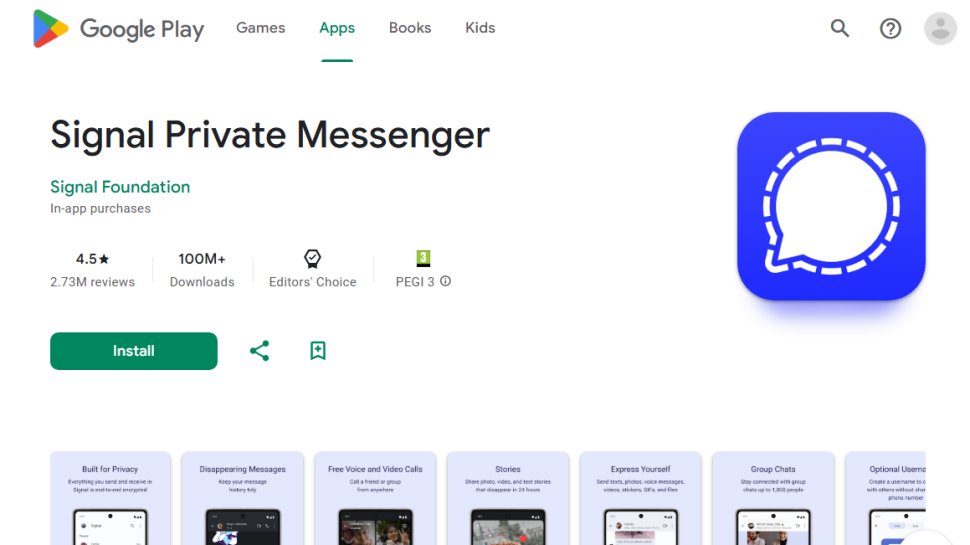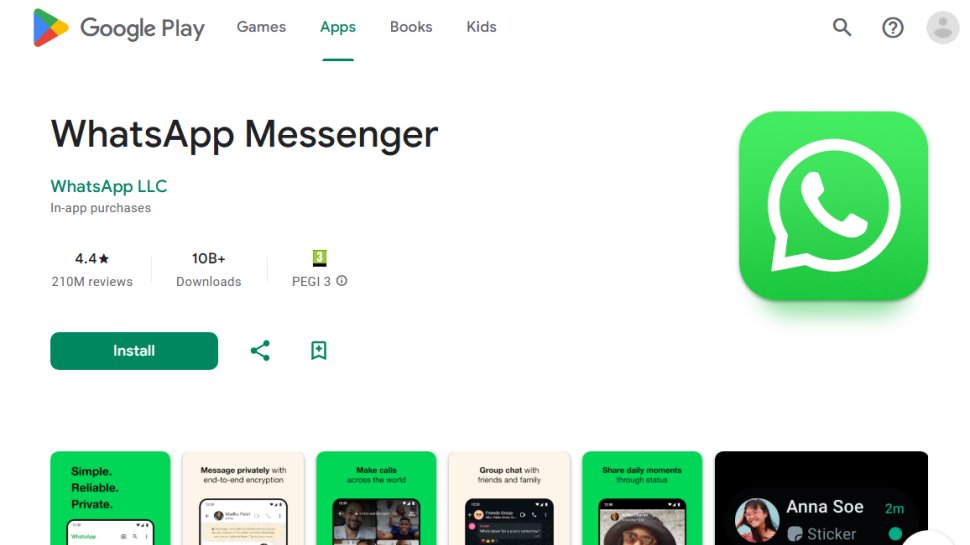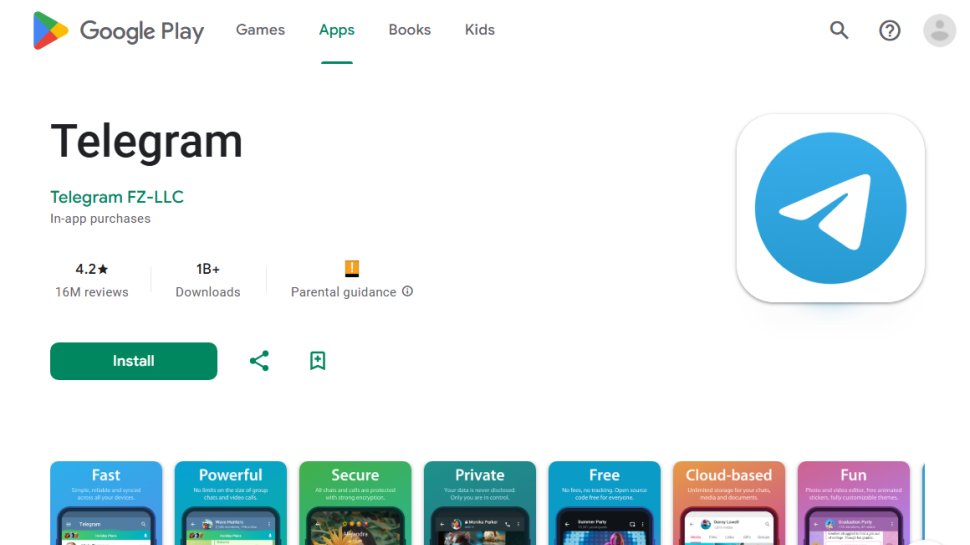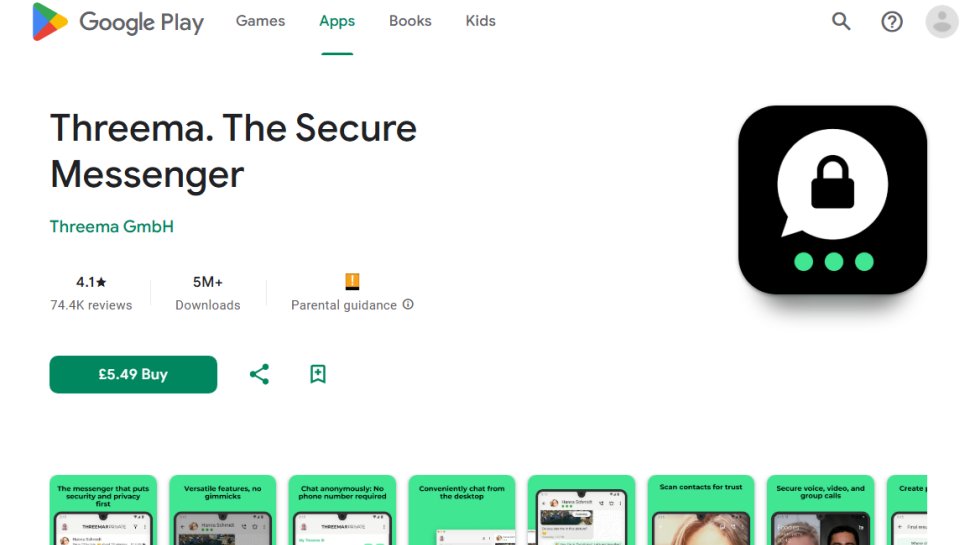Best encrypted messaging app for Android of 2025
Keep your messages private

Sign up for breaking news, reviews, opinion, top tech deals, and more.
You are now subscribed
Your newsletter sign-up was successful
We list the best encrypted messaging apps for Android, to make it simple and easy to ensure your texts and calls remain secure.
It’s never a bad idea to keep your communications private, so we’ve listed the best Android encrypted messaging apps to ensure your conversations stay between you and your friends and family, and away from any threat actors who could exploit your information. By testing these apps, our experts have determined the top choices for safeguarding your chats.
These secure communications platforms use encryption software, which scrambles your information into an unreadable form and protects your messages from unauthorized access. You can protect your professional information too by taking a look at our team’s picks for the best secure email provider for additional peace of mind.
US authorities recently warned that all US citizens should be using encrypted services to protect against foreign attackers, after a string of high profile intrusions on even the most theoretically secure firms like the FBI and CISA networks, which have proved that everyone should be concerned about the safety of their information.
To help make this choice easy, our team has tested these apps to evaluate the encryption algorithms used and the privacy policies of the respective companies, as well as the ease of use and additional services they all offer.
We've also featured the best privacy tools and anonymous browsers.
Best encrypted messaging apps for Android of 2025 in full:
Why you can trust TechRadar
Best encrypted messaging app for Android overall
Reasons to buy
Reasons to avoid
You're no doubt already familiar with WhatsApp as one of the best messaging apps out there, but you might not have realized that it offers end-to-end encryption for your messages – in fact, it uses the super-strong encryption protocol developed by Signal.
There's very little that WhatsApp can't do. As well as the standard text-based conversations, it's able to handle video calls, group chats, location sharing, and the transferring of files of various types. You can ping a lot of people at once with the Broadcast feature, leave voice memos, and more besides.
WhatsApp's immense popularity works in its favor as well, because the chances are that the people in your contacts list already have it installed to keep in touch with friends and family. All those chats are fully encrypted by default – there's no way to turn this off.
What might give you pause when it comes to using this app is that it is, of course, owned by Facebook, which means you're contributing to the data collection practices of the world's biggest social network. Facebook can't read your messages (the end-to-end encryption prevents that), but it can log other data about you for marketing purposes, like the location of your phone.
Read our full Whatsapp review.
Best encrypted messaging app for ease of use

Reasons to buy
Reasons to avoid
Signal is widely regarded as the gold standard of encrypted messaging apps, not least because its encryption engine is open source and available for anyone to inspect. That doesn't make it any easier to hack, but it does mean there are a lot more pairs of eyes looking at the robustness of the encryption methods.
Besides the industry-leading encryption on offer here, the app itself is fairly plain and basic in terms of visuals and appearance. It does support group chats though, as well as the sending of files and photos in addition to text, so you're going to be pretty well covered no matter what your needs.
Signal can replace the default SMS app if you want it to, but basic SMS texts aren't encrypted – you and the person you're chatting with both need to have Signal installed for the encryption feature to function properly, otherwise Signal doesn't have enough control over both ends of the conversation.
The app also includes several other useful features on top of the tight security, such as video calling, and disappearing messages that vanish after a certain time period (perfect for those conversations you don't want to stay on the record).
Read our full Signal review.
Best encrypted messaging app for performance
Reasons to buy
Reasons to avoid
Telegram is almost as well-respected as Signal is, although its encryption methods aren't open source and thus haven't been as well audited by third-party security experts. What it does have in its favor is a slicker interface, if that's important to you.
Another caveat about Telegram is that end-to-end encryption isn't enabled by default, so you need to make sure the Secret mode is activated before you can be sure that no one else is going to tap into your communications. Other types of chat and file transfer are encrypted, but only for part of their journey to other parties.
Those issues aside, Telegram impresses in most areas, with features like chat backups and disappearing messages (messages with expiry times attached). You can load up group chats, make video calls and more, and in use it's just as responsive and intuitive as the other messaging apps out there.
If you need all the bells and whistles of an instant messenger, like stickers and audio memos, and even a basic photo editor and best free video editing software, Telegram is a solid choice. Just be sure to enable the Secret mode for the most secure messaging.
Read our full Telegram review.
Best encrypted messaging app for anonymous messaging
Reasons to buy
Reasons to avoid
Threema is another secure messaging app that aims to keep your data out of the hands of corporations and governments. The app can be used anonymously, and it's not just messages but also phone calls that can be securely encrypted.
While secure connections are the mainstay of many messengers, Threema goes one further by ensuring no contact details are saved on their servers, and any messaging data that goes through them is immediately deleted once sent.
The result is that local files remain on your phone, rather than in the open on third-party servers where the information could be intercepted by hackers or data-collection agencies.
For all its security considerations, Threema is still a fully-functional messaging app, that allows you to send images, files, videos, and locations, as well as create groups and set up polls among trusted users.
There's no need to sign in with an email or other personally identifiable information, reducing the amount of data required to use it. All in all, Threema offers a very secure experience with security and anonymity in mind.
Read our full Threema review.
We've also featured the best mobile payment apps.
Best encrypted messaging app for Android FAQs
What is encryption?
Encryption refers to the process of scrambling data into an unreadable form, which protects from unauthorized third-party access. Encryption services use different algorithms to render the messages unreadable, and only someone who knows exactly which algorithm you use, and exactly how it's set up, would be able to restore the original form of the messages. In real terms, encryption means that no intruders can see your information.
Why do you need an encrypted messaging app?
Tech and privacy experts have long recommended encryption and privacy tools in securing data, and have welcomed US authorities’ advocacy for encryption communication software. Now more than ever, with seemingly constant threats from foreign actors, experts are urging citizens to switch to encrypted communication services.
Which encrypted messaging app is best for you?
When considering which messaging app to use for encrypted communications, you should consider what you need from the app. If you need more advanced encryption tools, or send particularly sensitive messages, then you may find that the more privacy focused platforms fit your needs best. But, if you want a more basic option, then the free options with easy to navigate user interfaces might be more suitable.
How we tested the best encrypted messaging app
Our team set up accounts for each of the relevant software platforms, and then tested the services to see how well the platforms performed when accessed through different devices, as well as testing out any additional tools available. The team made sure to make use of all advanced features to assess the platform's performance, as well as how useful the tools were, and how easy it was to understand the more advanced features.
Read more on how we test, rate, and review products on TechRadar.
Get in touch
- Want to find out about commercial or marketing opportunities? Click here
- Out of date info, errors, complaints or broken links? Give us a nudge
- Got a suggestion for a product or service provider? Message us directly
- You've reached the end of the page. Jump back up to the top ^
Sign up to the TechRadar Pro newsletter to get all the top news, opinion, features and guidance your business needs to succeed!

Benedict has been with TechRadar Pro for over two years, and has specialized in writing about cybersecurity, threat intelligence, and B2B security solutions. His coverage explores the critical areas of national security, including state-sponsored threat actors, APT groups, critical infrastructure, and social engineering.
Benedict holds an MA (Distinction) in Security, Intelligence, and Diplomacy from the Centre for Security and Intelligence Studies at the University of Buckingham, providing him with a strong academic foundation for his reporting on geopolitics, threat intelligence, and cyber-warfare.
Prior to his postgraduate studies, Benedict earned a BA in Politics with Journalism, providing him with the skills to translate complex political and security issues into comprehensible copy.
- David NieldFreelance Contributor


